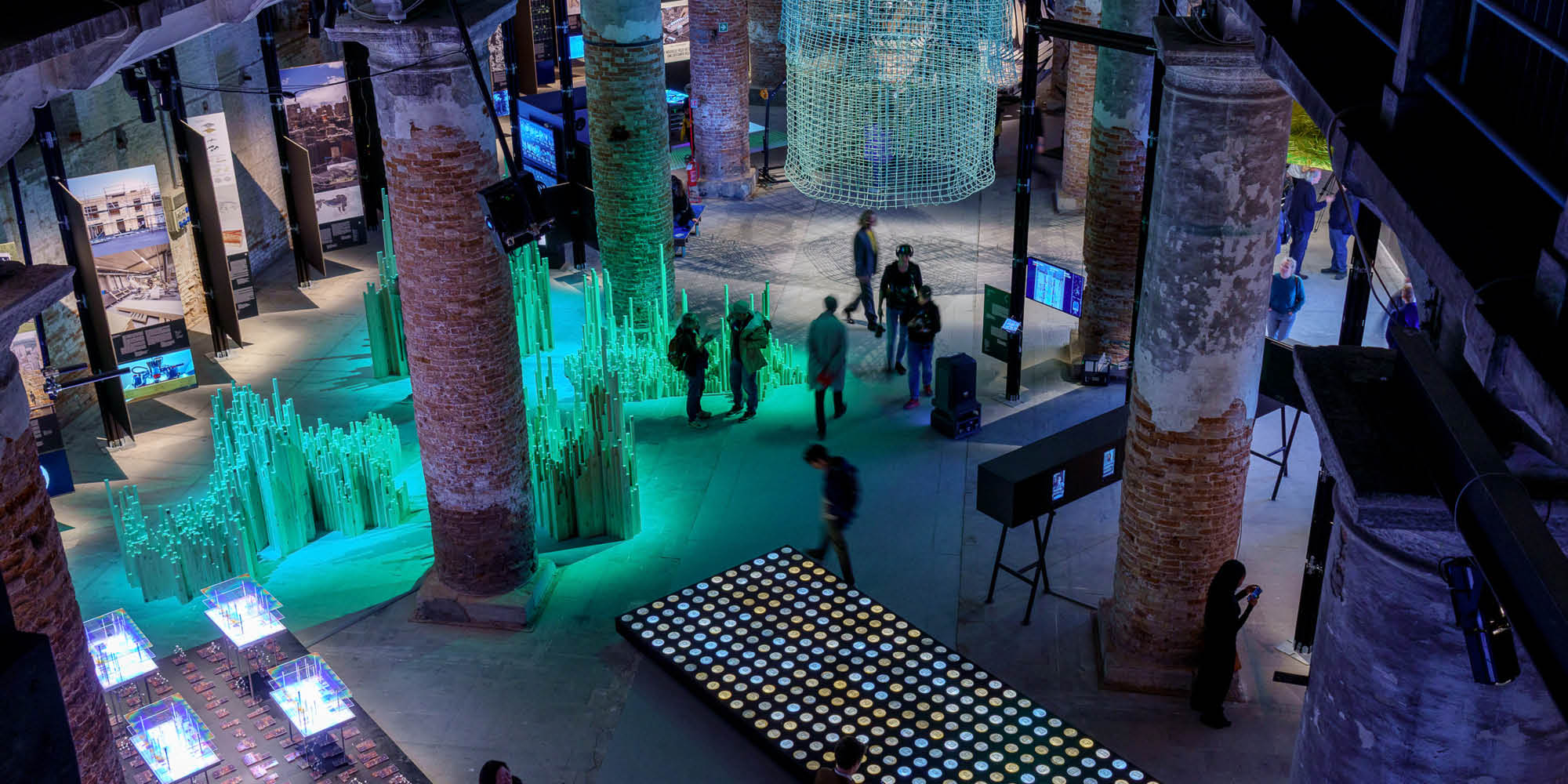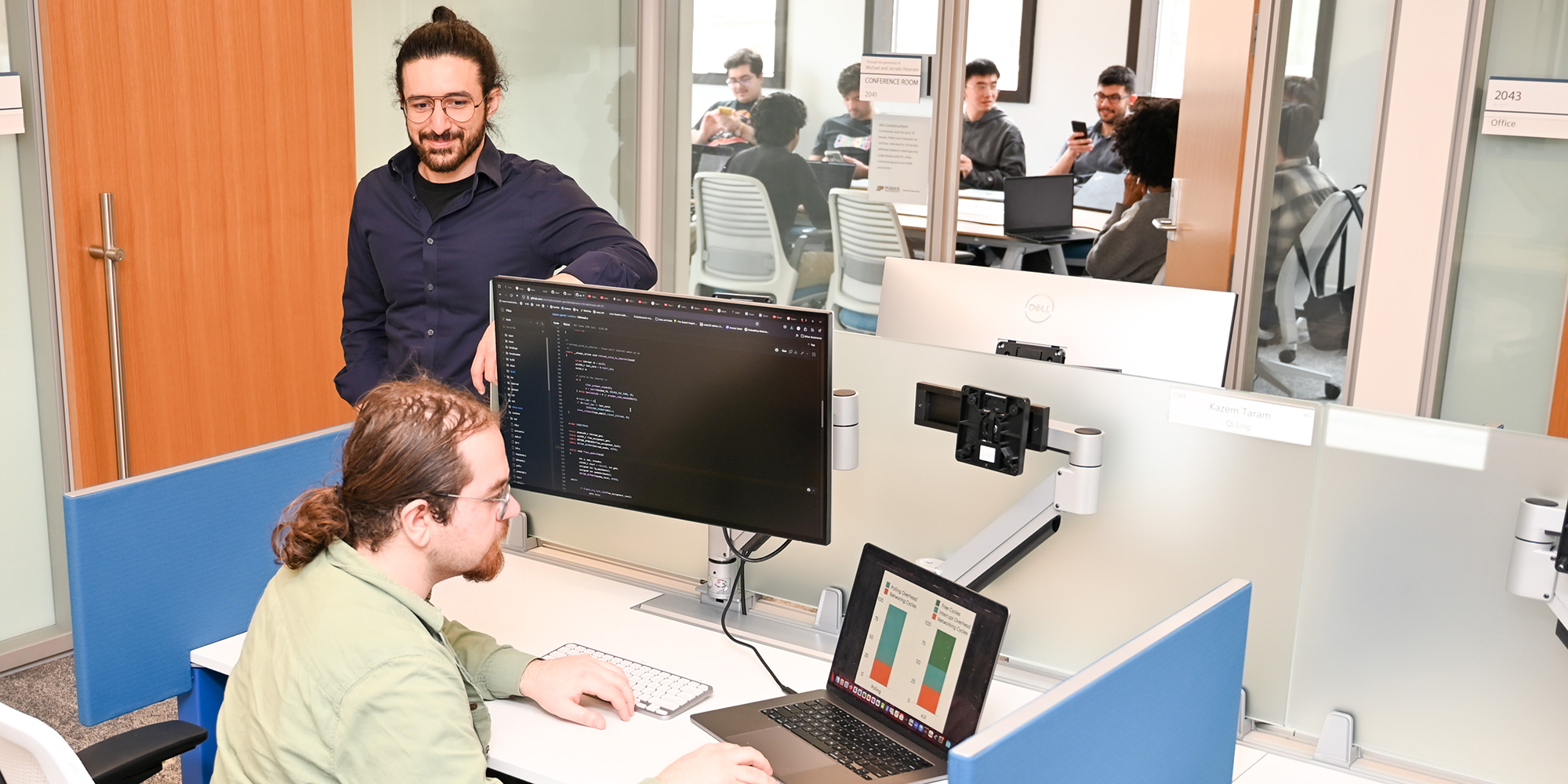Research
In the past five years, Computer Science faculty have had research collaborations with every other college at Purdue. The work of the computer scientist is applicable just about everywhere.
Research News
Research Areas
Artificial Intelligence, Machine Learning, and Natural Language Processing
Our group members study and devise core machine learning and artificial intelligence methods to solve complex problems throughout science, engineering, and medicine. Our goal is to enhance human lives and bring advanced technologies to augment human capabilities. This research involves both deployments in real-world applications as well as development of fundamental theories in computer science, mathematics, and statistics.
Bioinformatics and Computational Biology
Faculty in the area of bioinformatics and computational biology apply computational methodologies such as databases, machine learning, discrete, probabilistic, and numerical algorithms, and methods of statistical inference to problems in molecular biology, systems biology, structural biology, and molecular biophysics.
Computer Architecture
Computer Architecture research studies the interplay between computer hardware and software, particularly at the intersection of programming languages, compilers, operating systems, and security.
Computational Science and Engineering
The research area of Computational Science and Engineering answers questions that are too big to address experimentally or are otherwise outside of experimental abilities. Using the latest computers and algorithms, this group addresses those questions through numerical modeling and analysis, high-performance computation, massive distributed systems, combinatorial algorithms in science applications, high-speed data analysis, and matrix-based computations for numerical linear algebra.
Databases and Data Mining
The data revolution is having a transformational impact on society and computing technology by making it easier to measure, collect, and store data. Our databases and data mining (big data) research group develops models, algorithms, and systems to facilitate and support data analytics in large-scale, complex domains. Application areas include database privacy and security, web search, spatial data, information retrieval, and natural language processing.
Distributed Systems
The DS group focuses on designing distributed systems that are scalable, dependable, and secure, behaving according to their specification in spite of errors, misconfigurations, or being subjected to attacks. Areas of focus include virtualization technologies with emphasis on developing advanced technologies for computer malware defense and cloud computing.
Graphics, Visualization, and Geometric Modeling
This group performs research in graphics, visualization, computational geometry, and related applications. Focus areas include model acquisition, image generalization, scientific visualization, urban modeling, robust computational geometry, and geometric computations and constraints.
Human-Computer Interaction
Human-Computer Interaction (HCI) is a discipline that is concerned with the design, evaluation, and implementation of interactive computing systems for human use and with the study of major phenomena surrounding them.
Information Security and Assurance
Strong security and privacy is needed to defend our records, communications, finances, governments and infrastructure against all manner of threats and attacks, while also enhancing legitimate uses. Research in Information Security and Assurance focuses on the analysis, development, and deployment of technologies, algorithms, and policies to protect computing and data resources against malicious access or tampering, and to validate authenticity.
Networking and Operating Systems
This area works on fundamental problems at different layers of the network protocol stack – from the medium access control layer up to the application layer – using theoretical models, simulation, emulation, and extensive testbed experimentation to develop and evaluate proposed solutions which leverage techniques from game theory, information theory, complexity theory, optimization, and cryptography.
Programming Languages and Compilers
The PL group engages in research spanning all aspects of software systems design, analysis, and implementation. Active research projects exist in functional and object-oriented programming languages, both static and dynamic compilation techniques for scalable multicore systems, generative programming, assured program generation, scripting languages, distributed programming abstractions and implementations, real time and embedded systems, mobile and untrusted computing environments, and runtime systems with special focus on memory management and parallel computing environments.
Robotics and Computer Vision
The Robotics and Computer Vision area includes elements of machine learning, signal processing, and image processing to further develop robotics and computer vision systems from a computational science perspective.
Software Engineering
The software engineering area conducts research on applying advanced program analyses towards problems related to fault isolation and various kinds of bug detection, including those related to race conditions in concurrent programs, and specification inference for large-scale software systems.
Theory of Computing, Algorithms, and Quantum Computing
Members of the group work in areas that include analysis of algorithms, parallel computation, computational algebra and geometry, computational complexity theory, digital watermarking, data structures, graph algorithms, network algorithms, distributed computation, information theory, analytic combinatorics, random structures, external memory algorithms, and approximation algorithms.



